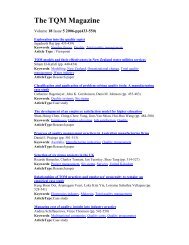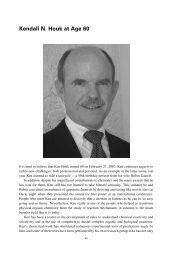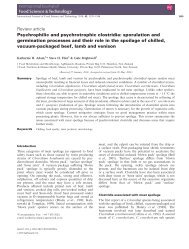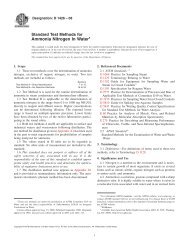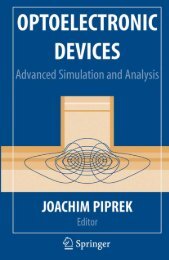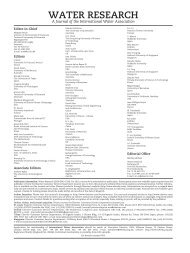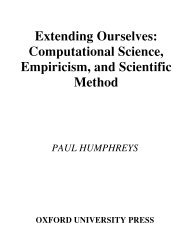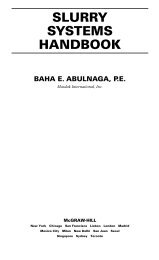Bad Astronomy: Misconceptions and Misuses Revealed, from ...
Bad Astronomy: Misconceptions and Misuses Revealed, from ...
Bad Astronomy: Misconceptions and Misuses Revealed, from ...
You also want an ePaper? Increase the reach of your titles
YUMPU automatically turns print PDFs into web optimized ePapers that Google loves.
HUBBLE TROUBLE 231<br />
staking your scientific reputation on your research. That Hubble<br />
data, once you’ve published it in an astronomical journal, is your<br />
lifeline.<br />
Now imagine that the instant you get your data, some other<br />
astronomer has access to it, too. This other astronomer isn’t as<br />
scrupulous <strong>and</strong> nice as you are. He or she also has experience with<br />
Hubble, knows just how to analyze your data, <strong>and</strong> might publish<br />
before you do! All that work, all that effort <strong>and</strong> time, <strong>and</strong> you get<br />
scooped with your own data.<br />
That’s why the data are held as proprietary for a year. That<br />
year gives the astronomer time to figure out what to do with the<br />
data <strong>and</strong> how best to analyze them. It’s only fair to you, who<br />
devoted so much of your life to getting the data, to let you have a<br />
chance to look at them before anyone else.<br />
So there’s no real secret involved. At the end of the proprietary<br />
period, ready or not, the data become public. Far <strong>from</strong> being anything<br />
shady on the part of NASA, keeping the data secret for a<br />
year is actually the best way astronomers have come up with to<br />
further the cause of science in a fair manner. It can be an agonizing<br />
wait when you know some good data won’t be available for a<br />
year, but it’s worth it.<br />
HUBBLE SHOOTS THE MOON<br />
Hubble is more than just a telescope with a camera stuck onto it.<br />
It’s a telescope with several cameras stuck onto it. Each instrument<br />
has a specific task. Some take ultraviolet images, others take infrared.<br />
Some take spectra by breaking the light <strong>from</strong> an object into<br />
individual colors. Each camera is a delicate, expensive piece of<br />
machinery.<br />
Some of these instruments are very sensitive to light. They can<br />
actually be damaged if too much light hits them. Anyone who has<br />
ever had a roommate turn on a light in the middle of the night can<br />
sympathize with that.<br />
This sensitivity has caused yet another myth about Hubble, that<br />
it cannot take images of the Moon. As the myth goes, the Moon is<br />
far too bright to be observed by Hubble without damaging these<br />
delicate instruments.



